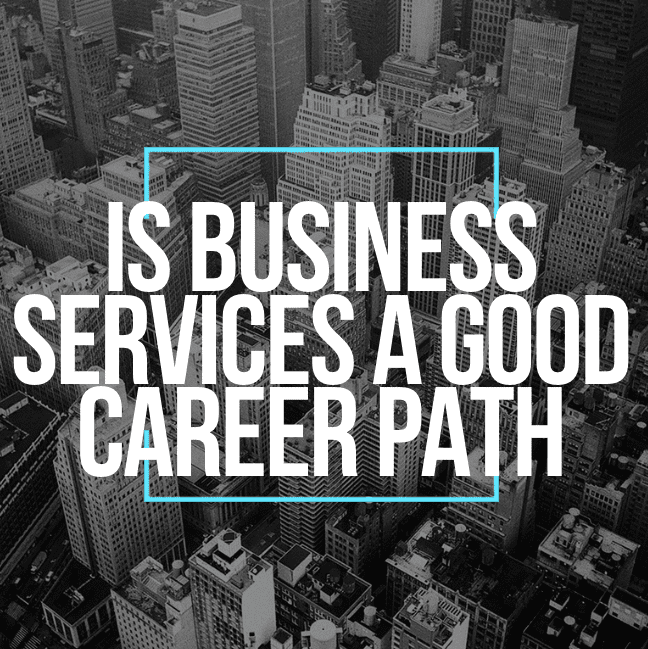Career Development Plan For Success In The 21st Century

The modern job market is constantly evolving, and it’s essential for professionals to stay ahead of the curve in order to succeed. With new technologies and automation transforming the workforce, having a solid career development plan is more important than ever.
Whether you’re just starting out in your career or looking for a change, a well-thought-out plan can help you reach new heights of success and achieve your professional goals.
This article will provide the key components of successful career growth, helping you stay ahead of the game! We’ll discuss how self-awareness, goal-setting, networking, learning and advancement are essential for success. Follow these guidelines and use career development planning as your toolbox to ensure steady progress towards securing a bright future.
Self-Awareness and Skill Assessment
The first step to career development is understanding yourself. You cannot build a plan for success until you know your goals and how you are best suited to achieve them. This requires a clear sense of self-awareness and an honest assessment of your strengths, weaknesses and interests.

Aligning goals with personal and professional values
It’s essential to align your career goals with your personal and professional values. This will help you stay motivated and focused on your career aspirations, and ensure that you’re working towards a career that aligns with what’s most important to you.
Take time to reflect on your values, and make sure your career goals align with them. Effective career development plans should include both professional and personal goals. Do not ever make a career plan just with a title or salary in mind.
For example, if you value work-life balance, make sure that your career plan incorporates a healthy amount of time for leisure and family. If community engagement is important to you, make sure your goals include ways to stay involved in the community. Understand that there may be trade-offs between your professional and personal goals, but having a clear idea of what matters most to you will help you make the best decisions for your career.
Understand your strengths, weaknesses, interests, and values
Self-awareness is an important step towards a successful career development plan. It’s essential to understand what motivates you, what you’re good at, and what you’re not so good at. This will help you identify career paths that align with your interests and values and avoid jobs that may not be a good fit.
Take time to reflect on your past experiences, accomplishments, and feedback from colleagues and supervisors to gain a deeper understanding of your strengths and weaknesses.
For example, if you’re highly organized, detail-oriented and thrive in a fast-paced environment, a career in project management could be ideal for you. Conversely, if you’re more creative and analytical, a career in data science may be the way to go.
Identify transferable skills and areas for improvement
Once you have a clear understanding of your strengths and weaknesses, it’s important to identify the transferable skills you have that can be applied to different industries and roles. This can help you open up new career paths and opportunities.
Additionally, identifying areas for improvement can help you stay productive, prioritize skill development and make a plan for how to close any skill gaps.
For example, if you’ve been working in customer service for many years, look at other roles that require customer service experience and identify skills like communication, people management, and problem solving that could be useful in a different position.
Assess the current job market demands and skill gaps
Keeping up with the current job market demands is crucial for a successful career development plan. Stay informed about the latest industry trends and job market demands, and assess the skills and qualifications that are most in-demand. This will help you identify skill gaps and areas for improvement, and make informed decisions about your career path and professional development.
For example, if you are software engineer, you may need additional skills in artificial intelligence or data science to stay competitive in the job market.
Setting Career Development Goals
Now that you have a clear understanding of yourself and the job market, it’s time to set career development goals. Setting tangible and achievable goals can help you stay motivated and make steady progress towards your professional objectives.

Short-term and long-term career aspirations
Start with a vision of where you’d like to be in the future, and then break it down into smaller and attainable goals. Start by identifying your short-term and long-term career aspirations, and make sure they align with your personal and professional values.
Be specific and realistic in your goal setting, and break down your long-term aspirations into smaller, manageable steps. Having a clear idea of what you want to achieve can help you stay focused and motivated on your career path.
But also remember that things can change over time. Life events, job market demands, and your personal interests may change over time, so it’s important to be flexible and adjust your goals as needed.
For example, if your long-term goal is to become a people manager, but you find that you love the technical side of the job, it’s ok to adjust your goals and focus on developing skills in this area.
Measuring and tracking progress towards career goals
Once you have set your career goals, it’s important to measure and track your progress towards achieving them. Regularly reviewing and reassessing your goals can help you stay on track and make necessary adjustments along the way.
Keep a record of your progress, and celebrate your successes along the way. By measuring and tracking your progress, you can stay focused on your career goals and make sure you’re moving in the right direction.
Professional Networking and Brand Building
Building a professional network and personal brand is essential to career success. You cannot by-pass these if you are serious about advancing your career.
Building a strong professional network
Building a strong professional network is a key component of a successful career development plan. Connect with individuals in your industry, attend events and conferences, and participate in professional organizations to expand your network and make valuable connections.
Having a strong network can help you stay informed about industry trends, open up new job opportunities, and provide valuable support and guidance along the way.
Creating and maintaining a personal brand
Your personal brand is the unique combination of your skills, values, and experiences that set you apart from others in your field. Building a strong personal brand can help you stand out in the job market, and communicate the value you bring to the table.
Take time to identify your unique qualities and experiences, and use that information to develop a strong personal brand that represents who you are and what you have to offer.
Utilizing social media and online platforms for professional development
Social media and online platforms can be valuable tools for professional development and brand building. Use these platforms to showcase your expertise, share your knowledge and experiences, and connect with others in your field.
Participate in online discussions, join professional groups, and build a strong online presence that showcases your skills and expertise. Utilizing social media and online platforms can help you stay informed, expand your network, and advance your career.
Hire a Career Coach
A career coach can help you understand your strengths and weakness and help you develop a blueprint for your career journey. Think of this like a Google maps route for your career, it may not be a straight line and may have multiple stops. But it is a career development program that is tailored for you to go from your current position to your dream career.
Employee development is a important agenda for many good companies. Many a times, a professional in the HR department might assist employees to create a career development plan within what the company offers. If climbing the career ladder within your company is enough, go this route.
Continuous Learning and Skill Development
21st century is harsh on people, especially in terms of skills. Technologies and job roles change overnight, so it is important to remain relevant by continuously upskilling and learning new things.

Staying up-to-date with the latest industry trends and technologies
In today’s rapidly changing job market, it’s essential to stay informed about the latest industry trends and technologies. Continuously learning and developing new skills is a key part of a successful career development plan, and will help you stay competitive and relevant in the job market.
Stay informed about the latest industry trends, and make a plan for how you will continue to learn and grow in your field.
Participating in online courses, workshops, and conferences
Participating in online courses, workshops, and conferences is an excellent way to continue learning and developing your skills. These opportunities can provide you with access to experts in your field, and give you the chance to network with other professionals.
Consider enrolling in online courses, attending workshops and conferences, and participating in professional development programs to continue learning and growing in your career.
Seeking mentorship and guidance from experienced professionals
Mentorship and guidance from experienced professionals can be invaluable to your career development. Seek out individuals in your field who have the skills and knowledge you want to develop, and ask for their guidance and mentorship.
Having a mentor can provide you with support, encouragement, and valuable insights as you work towards your career goals. By seeking mentorship and guidance, you can fast-track your career development and gain the knowledge and skills you need to succeed in your field.
Career Advancement and Opportunities
As you progress in your career, make sure to seek out new opportunities and strive for advancement.
Researching and exploring new career paths
A key part of a successful career development plan is researching and exploring new career paths. As you progress in your career, you may find that your goals and interests change, and that you want to pursue new opportunities.
Take time to research different career paths and explore the options available to you, and make a plan for how you will achieve your goals.
Seeking promotions and growth opportunities within current organization
If you’re currently employed, seeking promotions and growth opportunities within your current organization is a great way to advance your career. Take initiative, take on new responsibilities, and make a plan for how you will grow and progress in your role.
Look for opportunities to develop new skills, and seek out projects and initiatives that will challenge you and help you grow.
Considering self-employment and entrepreneurship
If you’re interested in entrepreneurship and self-employment, consider how this option fits into your career development plan. Starting a business or becoming self-employed can be a rewarding and fulfilling experience, but it’s important to carefully consider the risks and rewards involved.
Research the market, assess your skills and experience, and make a plan for how you will start and grow your business. By considering self-employment and entrepreneurship as a career option, you can take control of your career and build a fulfilling and successful future.
Wrap Up
In today’s rapidly evolving job market, self-awareness and continuous learning are key components of a successful career development plan. Understanding your strengths, weaknesses, interests, and values can help you make informed decisions about your career path and identify areas for improvement. Building a strong professional network and creating a personal brand can open doors to new opportunities and help you stand out in a crowded job market.
Investing in your professional growth and development is an investment in your future. Whether it’s taking online courses, participating in workshops and conferences, or seeking mentorship from experienced professionals, there are many ways to enhance your skills and stay ahead of the curve. By setting clear career goals and actively working towards them, you can stay on track and achieve your professional aspirations.
In conclusion, a well-rounded career development plan is essential for success in the 21st century job market. By being proactive and continuously investing in yourself, you can stay ahead of the curve, secure your future, and achieve your professional goals.
Good luck and happy career-building!
You might also want to check out career guides for RTE, IT career switch. More from author here




